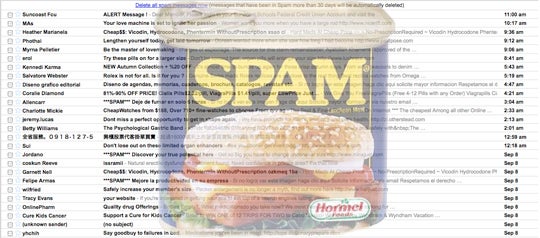Why You Get More Spam Than Your Friends
A study reveals that certain letters of the alphabet are more prone to getting junk mail

What’s in a name? A lot more than etymology. When it comes to junk mail, it turns out some names fare better than others in e-mail addresses depending on what letter they start with, according to a study conducted at the University of Cambridge. In an attempt to explain why certain people get more spam, computer security researcher Dr. Richard Clayton reviewed more than 550 million e-mails sent to customers through one of the U.K’s. biggest internet service providers between February and March this year.
He discovered that for e-mail addresses beginning with the letters “A”, “M”, “S”, “R” and “P,” 40 percent of all their mail could be classified as spam; only 20 percent was junk, though, for addresses starting with less popular letters like “Q”, “Z” and “Y.”
Common names are also more likely to attract unwanted mail. Spammers often carry out “dictionary” attacks, says Clayton. In other words, spammers who know there is a real person associated with an e-mail—like ann@example.com—will repeat the name with other mail providers until it strikes a live account. So, if others share the same name as you, you’re more likely to get spammed. On the flipside, the more obscure your name, the harder it is for spammers to get you—unless your name shows up on several Web sites.
Yet the research comes with anomalies. The letter “U” for instance attracted 50 percent spam. Clayton suggests this could be because many e-mail addresses start with names like “user1” and “user2.” Such incongruities are going to be further investigated. In the meanwhile, those with off-the-track names have a little bit to cheer about every time someone mispronounces their name in confusion.
Via BBC